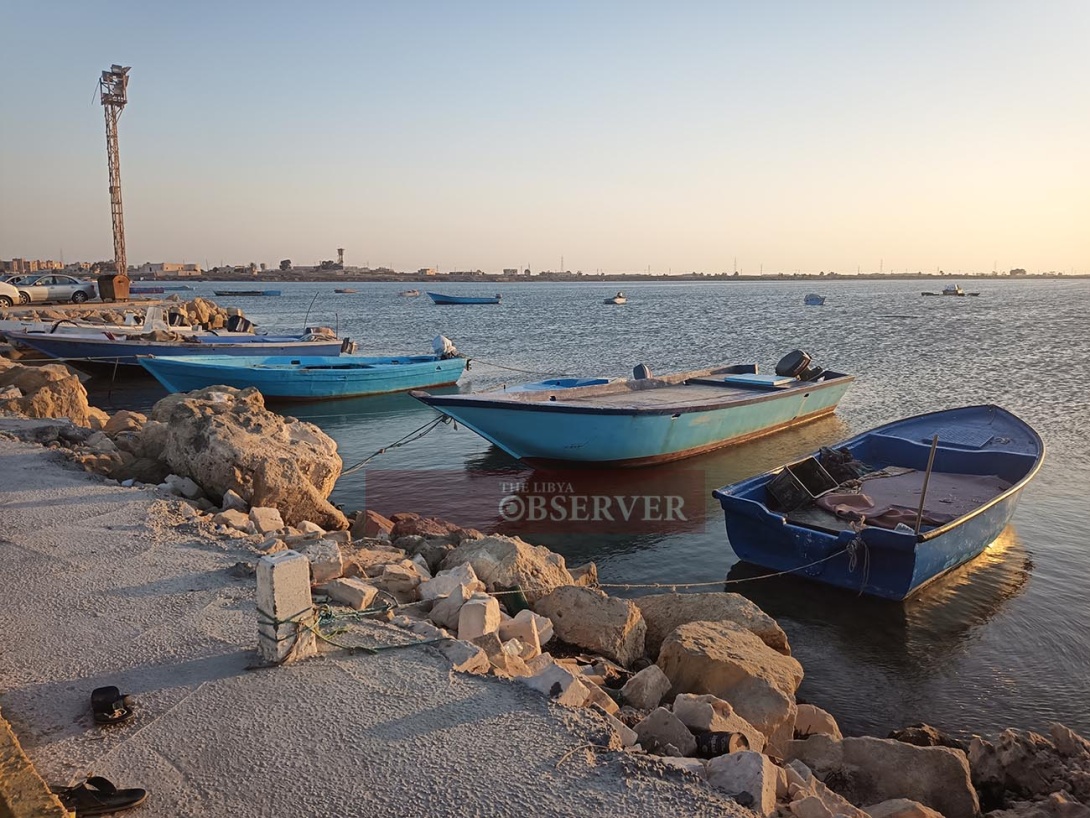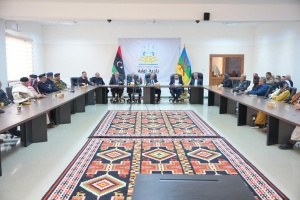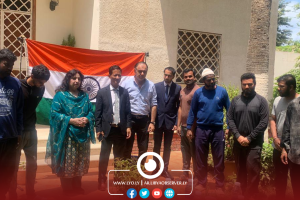Zuwara is a coastal Berber-speaking city in Libya. It has a population of about 32,893 people. It is famous for its beaches and seafood. It is situated 102 km west of Tripoli and 60 km from the Tunisian border. It is the capital of the Nuqat Al-Khams district. Its people speaks Zuwara Berber, a Zenati Berber language.
History
The city dates back to the second century BC, that is, during the reign of Massinisa, and its name in that era was Casas, and it was famous for exporting salt (Ticent) as the city’s residents call it, as its geographical location is surrounded by many large saltpans, and most of the economy was based on salt and the extraction of limestone from the adjacent springs, which are the main building material. Most of the old buildings existing so far were built with gypsum and the salt stone known to the population as Ulus gypsum stone.
The settlement was first mentioned by the traveller Al-Tidjani in the years 1306-1309 as Zuwara Al-Saghirah (Little Zuwara). In a Catalan sailing manual (1375). The town is mentioned by Leo Africanus in the 16th century. It later served as the western outpost of Italian Libya (1912–43), being the terminus of the now-defunct Italian Libya Railway from Tripoli 105 kilometres to the east. Its artificial harbour shelters a motorized fishing fleet.
Population activity
The activity of the population in the past was represented in agriculture, grazing and fishing, with the manufacture of lime, gypsum and salt, and in the first Karamanli era, a number of treaties were concluded with a number of Italian republics regarding the export of salt, and in the past its port, known as the port of (Tiboda), was one of the most famous ports in the field of salt export. Currently, it has a fishing port and a commercial port that was established in the Turkish era, then it was destroyed in World War II by Italian forces and after the Italian occupation it was restored by the invading forces. Italy also built the Libyan railway line, which extended from Zuwara to Tripoli, with a distance of 110 km. Finally, the largest Berber cemetery in its western borders was discovered in it.
Cereals, dates, and esparto grass (used to make cordage, shoes, and paper) are local products.
Farwa Island in Zuwara city
A Libyan island in the Mediterranean Sea, about 40 kilometers west of Zuwara, with an area of about 470 hectares, it contains a lighthouse that was rebuilt in 2002 and there are some springs in it, it also contains most of the wild animals such as the hare, the fox, the night hunting and other animals, and different kinds of birds, especially the marine birds, such as the ducks, the gull, the flamingo, and there is a type of migratory and endemic falcons in it.
Farwa is the only peninsula in Libya and one of the must-see sites in it. If you value your privacy and love fresh air, then Farwa could be a life-time opportunity to enjoy the exotic atmosphere of the unspoiled Mediterranean paradise.








